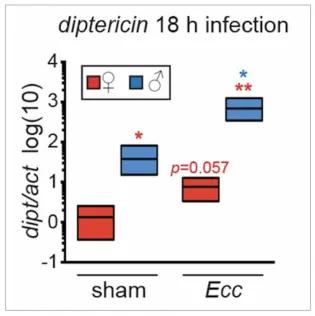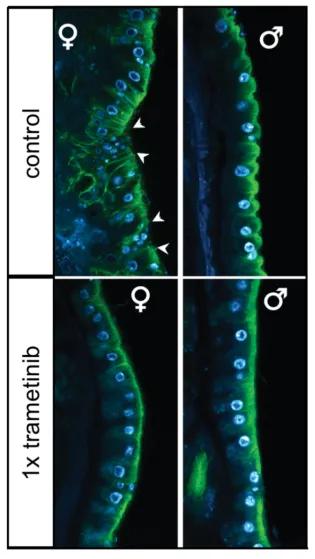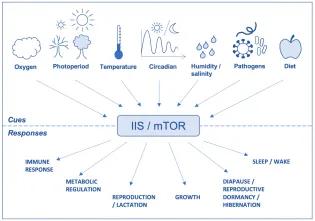We are interested in how sex differences in immune tissue function can result in sex differences in survival: both to acute infections, and over a lifetime to determine longevity. We want to find ways to target the immune system to promote healthy ageing in both sexes.
To answer these questions, we use the genetically tractable and rightly infamous Drosophila melanogaster (fruit fly). Our work uses genetics and microscopy to ask about the cellular and signalling mechanisms underpinning male-female variation in immunity and ageing, and we collaborate with colleagues in the Institute of Evolutionary Biology to better understand the evolutionary drivers for these sex differences.




